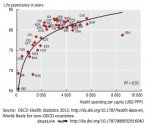- Joined
- Mar 7, 2018
- Messages
- 62,525
- Reaction score
- 19,318
- Location
- Lower Mainland of BC
- Gender
- Male
- Political Leaning
- Centrist
From the CBC
Ninety per cent of Canadians say they have fallen for fake news online, with many listing Facebook as the most common source of misleading reports, according to a new international public opinion poll.
The poll of 25,229 internet users, conducted by Ipsos Public Affairs for Canada's Centre for International Governance Innovation (CIGI), found that only 10 per cent of Canadian respondents said they had never fallen for fake news, which the poll defined as wholly or partly false information.
Another 52 per cent said that while they have fallen for fake news, they do it seldom; 33 per cent said it happened "sometimes" while 5 per cent said it happened "frequently."
The poll found that Canadians reported falling for fake news at a rate slightly higher than the international rate of 86 per cent and the North American average of 87 per cent.
The highest rate reported in the poll came from Egypt, where 93 per cent of respondents admitted to having fallen for fake news. The lowest reported rate was in Pakistan, where only 72 per cent said they had ever fallen for fake news.
COMMENT:-
I couldn't find a link to the actual poll referred to in this article (but I suspect that it is THIS ONE [and that one has links to what appears to be the whole poll, including methodology and data]) which is summarized HERE]), but I did find "In Era of Fake News, Trust in Traditional News Sources Rebounding". I suggest that both articles be read. (The second one is a later poll than the first.)
PS - Although conducted by a Canadian polling firm for a Canadian research agency, the polls contain data relevant to the US and (since the research agency doesn't appear to be trying to "sell" into the US market, one could suspect that the amount of "spin" the analysis places on the US data could very well be somewhat lower than the amount that was being placed on it by an agency attempting to "sell" into the US market.
Poll finds 90% of Canadians have fallen for fake news
Ninety per cent of Canadians say they have fallen for fake news online, with many listing Facebook as the most common source of misleading reports, according to a new international public opinion poll.
The poll of 25,229 internet users, conducted by Ipsos Public Affairs for Canada's Centre for International Governance Innovation (CIGI), found that only 10 per cent of Canadian respondents said they had never fallen for fake news, which the poll defined as wholly or partly false information.
Another 52 per cent said that while they have fallen for fake news, they do it seldom; 33 per cent said it happened "sometimes" while 5 per cent said it happened "frequently."
The poll found that Canadians reported falling for fake news at a rate slightly higher than the international rate of 86 per cent and the North American average of 87 per cent.
The highest rate reported in the poll came from Egypt, where 93 per cent of respondents admitted to having fallen for fake news. The lowest reported rate was in Pakistan, where only 72 per cent said they had ever fallen for fake news.
COMMENT:-
I couldn't find a link to the actual poll referred to in this article (but I suspect that it is THIS ONE [and that one has links to what appears to be the whole poll, including methodology and data]) which is summarized HERE]), but I did find "In Era of Fake News, Trust in Traditional News Sources Rebounding". I suggest that both articles be read. (The second one is a later poll than the first.)
PS - Although conducted by a Canadian polling firm for a Canadian research agency, the polls contain data relevant to the US and (since the research agency doesn't appear to be trying to "sell" into the US market, one could suspect that the amount of "spin" the analysis places on the US data could very well be somewhat lower than the amount that was being placed on it by an agency attempting to "sell" into the US market.

